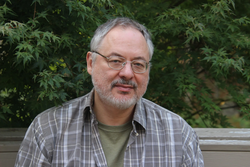Peter Turchin Quote
This is not to deny that there have been plenty of wicked kings in the past 2,500 years. Most likely they were in the majority. Nevertheless, the new trend was that rulers were at least supposed to be good. And many did try to govern in ways that benefited the common people, not just the ruling class. This remarkable turnaround happened virtually simultaneously in the Mediterranean, the Near East, India, and China. Why? The answer, simply put, is religion. Well, religion plus lots of war. This combination of factors isn’t usually considered very congenial to human flourishing.
Peter Turchin
This is not to deny that there have been plenty of wicked kings in the past 2,500 years. Most likely they were in the majority. Nevertheless, the new trend was that rulers were at least supposed to be good. And many did try to govern in ways that benefited the common people, not just the ruling class. This remarkable turnaround happened virtually simultaneously in the Mediterranean, the Near East, India, and China. Why? The answer, simply put, is religion. Well, religion plus lots of war. This combination of factors isn’t usually considered very congenial to human flourishing.
Related Quotes
About Peter Turchin
Peter Valentinovich Turchin (; born 22 May 1957) is a Russian-American complexity scientist, specializing in an area of study he and his colleagues developed called cliodynamics—mathematical modeling and statistical analysis of the dynamics of historical societies.
Turchin is an emeritus professor at the University of Connecticut in the departments of ecology and evolutionary biology, anthropology, and mathematics. He is a project leader at the Complexity Science Hub Vienna and a research associate at the School of Anthropology of the University of Oxford.
He was editor-in-chief and remains a member of the editorial board at Cliodynamics: The Journal of Quantitative History and Cultural Evolution. Turchin is a founding director of the Seshat: Global History Databank. He was a director of the Evolution Institute. In 2021, he was elected a fellow of the American Association for the Advancement of Science.
Turchin is an emeritus professor at the University of Connecticut in the departments of ecology and evolutionary biology, anthropology, and mathematics. He is a project leader at the Complexity Science Hub Vienna and a research associate at the School of Anthropology of the University of Oxford.
He was editor-in-chief and remains a member of the editorial board at Cliodynamics: The Journal of Quantitative History and Cultural Evolution. Turchin is a founding director of the Seshat: Global History Databank. He was a director of the Evolution Institute. In 2021, he was elected a fellow of the American Association for the Advancement of Science.
